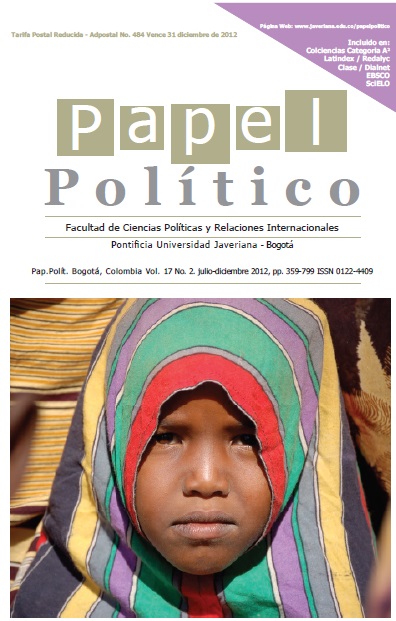Abstract
Since the mid-twentieth century it became increasingly evident that traditional analytical tools of the economic, political and sociological theoris were insufficient to explain the new patterns of interaction and the multinational, transnational and supranational phenomena that overflowed the borders of the nation state. New realities constituted a higher plane of an interconnected world a structure of suprastatal interactions, which dynamics and effects demanded the formulation of a unified theory. Three broad approaches: the controversy about the clash of civilizations, the discussion on globalization and the theorists of risk society suggestedthe possibility of such theory. This paper addresses three attempts of formulation: 1). from an economic perspective (theories of development, dependence and the “world system”); 2). from a political standpoint (the “world polity” of the neo-institutionalists); and 3). from the sociological perspective (the “global society “ of Niklas Luhmann). Our conclusion is that against both the economistic and the political approaches, Niklas Luhmann offers a less unilateral and more complete theoretical solution by transferring to a higher global level the old concept of society
whose borders have long been overwhelmed.
This journal is registered under a Creative Commons Attribution 4.0 International Public License. Thus, this work may be reproduced, distributed, and publicly shared in digital format, as long as the names of the authors and Pontificia Universidad Javeriana are acknowledged. Others are allowed to quote, adapt, transform, auto-archive, republish, and create based on this material, for any purpose (even commercial ones), provided the authorship is duly acknowledged, a link to the original work is provided, and it is specified if changes have been made. Pontificia Universidad Javeriana does not hold the rights of published works and the authors are solely responsible for the contents of their works; they keep the moral, intellectual, privacy, and publicity rights.
Approving the intervention of the work (review, copy-editing, translation, layout) and the following outreach, are granted through an use license and not through an assignment of rights. This means the journal and Pontificia Universidad Javeriana cannot be held responsible for any ethical malpractice by the authors. As a consequence of the protection granted by the use license, the journal is not required to publish recantations or modify information already published, unless the errata stems from the editorial management process. Publishing contents in this journal does not generate royalties for contributors.


